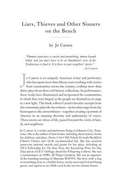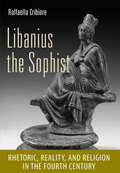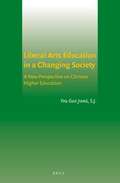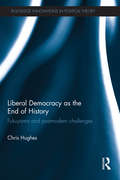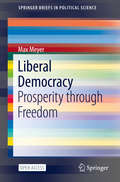- Table View
- List View
Lianda
by John IsraelIn the summer of 1937, Japanese troops occupied the campuses of Beijing’s two leading universities, Beida and Qinghua, and reduced Nankai, in Tianjin, to rubble. These were China's leading institutions of higher learning, run by men educated in the West and committed to modern liberal education. The three universities first moved to Changsha, 900 miles southwest of Beijing, where they joined forces. But with the fall of Nanjing in mid-December, many students left to fight the Japanese, who soon began bombing Changsha. In February 1938, the 800 remaining students and faculty made the thousand-mile trek to Kunming, in China’s remote, mountainous southwest, where they formed the National Southwest Associated University (Lianda). In makeshift quarters, subject to sporadic bombing by the Japanese and shortages of food, books, and clothing, students and professors did their best to conduct a modern university. In the next eight years, many of China’s most prominent intellectuals taught or studied at Lianda. This book is the story of their lives and work under extraordinary conditions. Lianda’s wartime saga crystallized the experience of a generation of Chinese intellectuals, beginning with epic journeys, followed by years of privation and endurance, and concluding with politicization, polarization, and radicalization, as China moved from a war of resistance against a foreign foe to a civil war pitting brother against brother. The Lianda community, which had entered the war fiercely loyal to the government of Chiang Kai-shek, emerged in 1946 as a bastion of criticism of China’s ruling Guomindang party. Within three years, the majority of the Lianda community, now returned to its north China campuses in Beijing and Tianjin, was prepared to accept Communist rule. In addition to struggling for physical survival, Lianda’s faculty and students spent the war years striving to uphold a model of higher education in which modern universities, based in large part on the American model, sought to preserve liberal education, political autonomy, and academic freedom. Successful in the face of wartime privations, enemy air raids, and Guomindang pressure, Lianda’s constituent universities eventually succumbed to Communist control. By 1952, the Lianda ideal had been replaced with a politicized and technocratic model borrowed from the Soviet Union.
Liang Ch’i Ch’ao and the Mind of Modern China
by Joseph R. LevensonThe distinction between “history” and “value” is the ground of this penetrating work. Liang Ch’i-ch’ao began writing in the 1890’s, as one who was straining against his tradition intellectually, seeing value elsewhere, but still emotionally tied to it, held by his history. How history contrived such a tension, how its release in Liang went together with the release of Confucian China from life, is the grand subject.And in drawing the times out of Liang’s intellectual life, Mr. Levenson contributes much of more general interest—a new understanding of the concepts of anachronism, analogy, contemporaneity, the generation, historical relativism, historical context, cultural and national identity, personal identity, and the distinction (crucial to comprehension of why ideas ever change) between “thinking” and “thought.”“A brilliant study of the life and work of an exceptional writer who shaped the political thought of modern China…Told with a humanist understanding far removed from the dry-as-dust manner usually ascribed to front-rank historians…this detailed account of a maker of modern China will interest not only the scholar in Far Eastern affairs, but will hold enthralled all students of the human mind in its never-ending quest for adjustment in a world of change.”—Asia Major“Why was the Confucian tradition found wanting? Why was westernization rejected? Why was Nationalism not enough for China? To these and many similar questions Liang’s life and writings provide the best answer. Mr. Levenson has interpreted them with real insight into the nature of Chinese civilization.”—Times Literary Supplement“Advances enough brilliant and challenging hypotheses to invigorate studies of Chinese intellectual history for a long time to come….[Levenson’s study] shows throughout a compassionate understanding of the harsh dilemmas, the bitter tragedies that the last century has brought to all Chinese.”—Arthur F. Wright
Liangzhu Jade Artifacts: Legal Instrument and Royalty (Liangzhu Civilization)
by Bin LiuThis book provides the reader with the latest archaeological discoveries of Liangzhu culture for its sophisticated jade artifacts. The structure and contents systematically present that large-scale ritual vessels such as jade cong and bi were originally regarded as the embodiment of Zhou and Han dynasties have been proved as burial accessories of Liangzhu culture. This confirmation urges archaeologists to renew an earlier interpretation of societal development dimension in Liangzhu culture. The book discussed the compatibilities between types and function of Liangzhu jades vividly displayed. It provides archaeological researchers and students by gaining an in-depth perspective of aesthetic appreciation of jade while understanding of the spiritual world of people in Liangzhu as well as the transition between the functions of power and belief.
Liangzhu Pottery: Introversion and Resplendence (Liangzhu Civilization)
by Ye ZhaoThis book elaborates on the distinctive characteristics as well as the archaeological, historical and artistic value of Liangzhu pottery, welcoming readers to the wonderful world of Liangzhu by introducing them to its origin, type, design, decoration, evolution and processing technology. It also presents the types of pottery that people in Liangzhu used daily to eat, drink, and bury their dead. Thanks to a wealth of photos taken at the archaeological site, readers can admire the color, decorative patterns, types and shapes of unearthed pottery. The book vividly reveals the lifestyle, aesthetics and level of scientific-technical development in Liangzhu society 5000 years ago.
Liar Moon
by Ben PastorPraise for Ben Pastor's Lumen: "Pastor's plot is well crafted, her prose sharp. . . . A disturbing mix of detection and reflection."--Publishers Weekly "Rivets the reader with its twist of historical realities. A historical piece, it faithfully reproduces the grim canvas of war. A character study, it captures the thoughts and actions of real people, not stereotypes."--The Free Lance-Star "And don't miss Lumen by Ben Pastor. . . . An interesting, original, and melancholy tale."--Literary Review Italy, September 1943. The Italian government switches sides and declares war on Germany. The north of Italy is controlled by the fascist puppets of Germany; the south liberated by Allied forces fighting their way up the peninsula. Having survived hell on the Russian front, Wehrmacht major and aristocrat Baron Martin von Bora is sent to Verona. He is ordered to investigate the murder of a prominent local fascist: a bizarre death threatening to discredit the regime's public image. The prime suspect is the victim's twenty-eight-year-old widow Clara. Haunted by his record of opposition to SS policies in Russia, Bora must watch his step. Against the backdrop of relentless anti-partisan warfare and the tragedy of the Holocaust, a breathless chase begins. Ben Pastor, born and now back in Italy, lived for thirty years in the United States, working as a university professor in Vermont. The first in the Martin Bora series, Lumen, was published by Bitter Lemon Press in May 2011.
Liar's Circus: A Strange and Terrifying Journey Into the Upside-Down World of Trump's MAGA Rallies
by Carl Hoffman"A brilliant, riveting, funny, terrifying journey into the beating heart of Trumpland." —Liza Mundy, author of Code GirlsIn this daring work of immersive journalism, based on hundreds of hours of reporting, Carl Hoffman journeys deep inside Donald Trump’s rallies, seeking to understand the strange and powerful tribe that forms the president’s base. Hoffman, who has written about the most dangerous and remote corners of the world, pierced this alternate society, welcomed in and initiated into its rites and upside-down beliefs, and finally ushered to its inner sanctum. Equally freewheeling and profound, Liar’s Circus tracks the MAGA faithful across five thousand miles of the American heartland during a crucial arc of the Trump presidency stretching from the impeachment saga to the dawn of the coronavirus pandemic that ended the rallies as we know it.Trump’s rallies are a singular and defining force in American history—a kind of Rosetta stone to understanding the Age of Trump. Yet while much remarked upon, they are, in fact, little examined, with the focus almost always on Trump’s latest outrageous statement. But who are the tens of thousands of people who fill these arenas? What do they see in Trump? And what curious alchemy—between president and adoring crowd—happens there that might explain Trump’s rise and powerful hold over both his base and the GOP?To those on the left, the rallies are a Black Mass of American politics at which Trump plays high priest, recklessly summoning the darkest forces within the nation. To the MAGA faithful, the rallies are a form of pilgrimage, a joyous ceremony that like all rituals binds people together and makes them feel a part of something bigger than themselves. Both sides would acknowledge that this traveling roadshow is the pressurized, combustible core of Trump’s political power, a meeting of the faithful where Trump is unshackled and his rhetoric reaches its most extreme, with downstream consequences for the rest of the nation.To date, no reporter has sought to understand the rallies as a sociological phenomenon examined from the bottom up. Hoffman has done just this. He has stood in line for more than 170 hours with Trump's most ardent superfans and joined them at the very front row; he has traveled from Minnesota to Texas, Louisiana, Mississippi, and New Hampshire immersing himself in their culture. Liar’s Circus is a revelatory portrait of Trump’s America, from one of our most intrepid journalists.
Liar's Oath: The Legacy of Gird Book Two (Legacy of Gird #2)
by Elizabeth MoonPaksenarrion was the finest paladin her world would ever see. But she could never have fulfilled her destiny had it not been for one who came before: Gird, the Liberator.When Gird leads his peasant army against their mageborn rulers, he knows that his sworn follower Luap is the king's bastard son. But in spite of his oath to seek no throne and to renounce his heritage, Luap cannot not forget his past. And when he discovers a distant land that he can reach by magic, his loyalties are divided. What harm would it do if he were to break his oath and crown himself king of this far-off land? Deep in the western mountains, in a sanctuary abandoned by the elder races, Luap finds out - as do those who follow him. Liar's Oath is the second of two prequels to the hugely popular DEED OF PAKSENARRION trilogy.
Liar's Winter: An Appalachian Novel
by Cindy K. SprolesLochiel Ogle was born with a red-wine birthmark--and it put her life in jeopardy from the moment she entered the world. Mountain folks called it "the mark of the devil," and for all the evil that has plagued her nineteen-year existence, Lochiel is ready to believe that is true. And the evil surely took control of the mind of the boy who stole her as an infant, bringing her home for his mother to raise.Abused and abandoned by the only people she knows as family, Lochiel is rescued by a peddler and given the first glimpse of love she has ever known. The truth of her past is gradually revealed as is the fact that she is still hunted by a brother driven to see her dead. Unsure if there's anyone she can truly trust, Lochiel is faced with a series of choices: Will she continue to run for escape or will she face her past and accept the heartbreaking secrets it reveals? Which will truly free her?Set in the wild and beautiful Appalachian Mountains of nineteenth-century East Tennessee, Liar's Winter is an unflinching yet inspirational exploration of prejudice and choice.
Liar, Temptress, Soldier, Spy: Four Women Undercover in the Civil War
by Karen AbbottKaren Abbott, the New York Times bestselling author of Sin in the Second City and “pioneer of sizzle history” (USA Today), tells the spellbinding true story of four women who risked everything to become spies during the Civil War.Karen Abbott illuminates one of the most fascinating yet little known aspects of the Civil War: the stories of four courageous women—a socialite, a farmgirl, an abolitionist, and a widow—who were spies.After shooting a Union soldier in her front hall with a pocket pistol, Belle Boyd became a courier and spy for the Confederate army, using her charms to seduce men on both sides. Emma Edmonds cut off her hair and assumed the identity of a man to enlist as a Union private, witnessing the bloodiest battles of the Civil War. The beautiful widow, Rose O’Neale Greenhow, engaged in affairs with powerful Northern politicians to gather intelligence for the Confederacy, and used her young daughter to send information to Southern generals. Elizabeth Van Lew, a wealthy Richmond abolitionist, hid behind her proper Southern manners as she orchestrated a far-reaching espionage ring, right under the noses of suspicious rebel detectives.Using a wealth of primary source material and interviews with the spies’ descendants, Abbott seamlessly weaves the adventures of these four heroines throughout the tumultuous years of the war. With a cast of real-life characters including Walt Whitman, Nathaniel Hawthorne, General Stonewall Jackson, detective Allan Pinkerton, Abraham and Mary Todd Lincoln, and Emperor Napoleon III, Liar, Temptress, Soldier, Spy draws you into the war as these daring women lived it.Liar, Temptress, Soldier, Spy contains 39 black & photos and 3 maps.
Liars & Legends: The Weirdest, Strangest, and Most Interesting Stories from the South
by Emily EllisonEveryone loves a good story. And Liars and Legends contains 40 of the South's most interesting and . . . well . . . just plain curious stories. This book grows out of the popular Turner South television show, Liars and Legends and will be promoted on the show.
Liars and Thieves (A Company of Liars short story): An exclusive e-novella accompaniment to Company of Liars
by Karen MaitlandLiars and Thieves is an exclusive e-novella featuring characters from Karen Maitland's much-loved Company of Liars, set against the backdrop of the plague outbreak of 1348. Sure to enthral fans of Minette Walters' The Last Hours and Kate Mosse's The Burning Chambers. 'Combines the storytelling traditions of The Canterbury Tales with the supernatural suspense of Mosse's Sepulchre in this atmospheric tale of treachery and magic' Marie Claire on Company of LiarsCamelot and Narigorm the rune reader return to delight fans of Karen Maitland's classic novel as the company - in their desperate bid to outrun the plague - encounter a band of outlaws, who are making the most of the breakdown in law and order to steal from the weak ... and kill at leisure.But in the child Narigorm they might just have met their match - for plague is the lesser of those two evils.What readers are saying about Liars and Thieves: 'If you read Company of Liars, you'll love this. A wonderful short story''A short but excellent read from this consistently reliable author''An interesting gap filler. Atmospheric, dark, occasionally gruesome and mildly creepy. A nice reminder of the original characters and storyline'
Liars and Thieves (A Company of Liars short story): An exclusive e-novella accompaniment to Company of Liars
by Karen MaitlandLiars and Thieves is an exclusive novella featuring characters from Karen Maitland's much-loved Company of Liars, set against the backdrop of the plague outbreak of 1348. Also included are the opening chapters from The Vanishing Witch, Karen's thrilling new novel, which is published in August. 'Combines the storytelling traditions of The Canterbury Tales with the supernatural suspense of Mosse's Sepulchre in this atmospheric tale of treachery and magic' Marie Claire on Company of Liars Camelot and Narigorm the rune reader return to delight fans of Karen Maitland's classic novel as the company - in their desperate bid to outrun the plague - encounter a band of outlaws, who are making the most of the breakdown in law and order to steal from the weak ... and kill at leisure. But in the child Narigorm they might just have met their match - for plague is the lesser of those two evils.
Liars, Thieves and Other Sinners on the Bench
by Jo Carson"Haunting and funny, full of folk wisdom and unfl inching honesty."--Publishers Weekly, on the work of Jo Carson"She is a quintessential community artist with a true ear for the way people talk and what they really mean to say. Her work has inspired innumerable young artists to take up work with their own communities."--Linda Frye Burnham, Community Arts Network"Human experience is varied and astonishing," notes Jo Carson, "and this is a taste." A uniquely American writer and performer, Carson has spent fifteen years working with peoples' stories in communities across the country, crafting more than thirty plays from the oral histories she has collected. In performance, these works have illuminated and invigorated the communities in which they were forged, as the people see themselves onstage in a new light. This book collects Carson's favorite excerpts from the plays--stories that range from the homespun to the extraordinary and together create a portrait of America in an amazing diversity and authenticity of voices. They are slices of life, passed beyond the circle of family and neighbors.Jo Carson is a writer and performer living in John City, Tennessee. She has published award-winning plays, short stories, children's books, essays, poems, and other work, and for years was a commentator on National Public Radio's All Things Considered. Her play Whispering to Horses and solo show If God Came Down . . . premiered at Seven Stages Theatre in Atlanta, and her book of monologues and dialogues, Stories I Ain't Told Nobody Yet, made Booklist's editor's choice and the American Library Association's recommended list.
Libanius the Sophist: Rhetoric, Reality, and Religion in the Fourth Century
by Raffaella CribioreLibanius of Antioch was a rhetorician of rare skill and eloquence. So renowned was he in the fourth century that his school of rhetoric in Roman Syria became among the most prestigious in the Eastern Empire. In this book, Raffaella Cribiore draws on her unique knowledge of the entire body of Libanius’s vast literary output—including 64 orations, 1,544 letters, and exercises for his students—to offer the fullest intellectual portrait yet of this remarkable figure whom John Chrystostom called “the sophist of the city."Libanius (314–ca. 393) lived at a time when Christianity was celebrating its triumph but paganism tried to resist. Although himself a pagan, Libanius cultivated friendships within Antioch’s Christian community and taught leaders of the Church including Chrysostom and Basil of Caesarea. Cribiore calls him a “gray pagan” who did not share the fanaticism of the Emperor Julian. Cribiore considers the role that a major intellectual of Libanius’s caliber played in this religiously diverse society and culture. When he wrote a letter or delivered an oration, who was he addressing and what did he hope to accomplish? One thing that stands out in Libanius’s speeches is the startling amount of invective against his enemies. How common was character assassination of this sort? What was the subtext to these speeches and how would they have been received? Adapted from the Townsend Lectures that Cribiore delivered at Cornell University in 2010, this book brilliantly restores Libanius to his rightful place in the rich and culturally complex world of Late Antiquity.
Libations of the Eighteenth Century: A Concise Manual for the Brewing of Authentic Beverages from the Colonial Era of America and Other Places (2nd Edition)
by David A. WoolseyThis manual works equally well for the novice brewer, the advanced brewer, and food historians or Living History enthusiasts. Having an emphasis on Colonial America, within may be found more than fifty recipes for beer and ale as well as mead and hard ci
Libby Prison Breakout: The Daring Escape from the Notorious Civil War Prison
by Joseph WheelanWhile many books have been inspired by the horrors of Andersonville prison, none have chronicled with any depth or detail the amazing tunnel escape from Libby Prison in Richmond. Now Joseph Wheelan examines what became the most important escape of the Civil War from a Confederate prison, one that ultimately increased the North’s and South’s willingness to use prisoners in waging "total war. ” In a converted tobacco warehouse, Libby’s 1,200 Union officers survived on cornbread and bug-infested soup, and slept without blankets on the bare floor. With prisoner exchanges suspended, escape and death were the only ways out. Libby Prison Breakout recounts the largely unknown story of the escape of 109 steel-nerved officers through a 55-foot tunnel, and their flight in winter through the heart of the enemy homeland, amid an all-out Rebel manhunt. The officers’ later testimony in Washington spurred two far-reaching investigations and a new cycle of retaliation against Rebel captives.
Libby or Liberty
by Tracey E. FernUnion Colonel Thomas E. Rose was captured in a Civil War battle and thrown in the brutal and secure Libby Prison. He quickly realizes that tunneling out is the only way to escape and joins forces with Major A. G. Hamilton to begin digging to freedom.
Libby's London Merchant: Signet Regency Romance (InterMix) (A Benedict Nesbitt Novel)
by Carla KellyLibby’s London MerchantMiss Elizabeth Ames knew nothing about Mr. Nesbitt Duke -save that he was a London merchant who stopped by her country manor after an accident on the road. Soon she realized that he was more than he seemed -and that he had stolen her heart…Miss Chartley’s Guided TourAfter being abandoned at the altar, Omega Chartley swore she would never love again, and found employment of her own -though far below her station. Then fate brought her ex-fiance Matthew Bering back into her life. And although she has every reason to reject his entreaties, she finds herself once more under his spell…
Liber Uricrisiarum: A Reading Edition
by Henry DanielHenry Daniel’s Liber Uricrisiarum is the earliest known work of academic medicine written in Middle English, presented here for the first time in a complete edition. Working in the late 1370s, Daniel combined authoritative medicine from written sources with his own personal experience, creating a text that stands out for its linguistic originality, intellectual scope, and wide circulation. Extant in over three dozen manuscript witnesses and two early modern print copies, Liber Uricrisiarum describes medieval humoral theory, anatomy, physiology, disease, medical astronomy, reproductive processes, and more, all within the broader context of uroscopic diagnosis. The introduction situates the text and its author in their medical, intellectual, linguistic, and bibliographic contexts, outlining the uroscopic tradition to which Daniel contributes, and describing the relationships among the many manuscripts containing the Liber Uricrisiarum. This edition presents the Middle English text, with a general glossary, glossary of proper names, and explanatory notes that explain obscure words and phrases and identify Daniel’s sources. It also includes the complete set of diagrams contained in the Royal manuscript; appendices providing the Latin and English versions of the prologue and epilogue; an extensive translation from one of Daniel’s important sources, Isaac Israeli’s De urinis; tables relevant to Daniel’s astronomical measurements; and an analysis of the Royal manuscript’s dialect. Cumulatively, the edition and apparatus introduce readers to an important yet understudied text, the details of which will have significant impact on studies of medieval medicine and science, intellectual history, and Middle English language and literature.
Liberal Arts Education In A Changing Society: A New Perspective On Chinese Higher Education
by You Guo JiangIn Liberal Arts Education in a Changing Society: A New Perspective on Chinese Higher Education You Guo Jiang provides a unique focus on the re-emergence of liberal arts education in China.
Liberal Barbarism
by Erik RingmarIn Liberal Barbarism, Erik Ringmar sets out to explain the 1860 destruction of Yuanmingyuan - the Chinese imperial palace north-west of Beijing - at the hands of British and French armies. Yuanmingyuan was the emperor's own theme-park, a perfect world, a vision of paradise, which housed one of the greatest collections of works of art ever assembled. The intellectual puzzle which the book addresses concerns why the Europeans, bent on "civilizing" the Chinese, engaged in this act of barbarism. The answer is provided through an analysis of the performative aspect of the confrontation between Europe and China, focusing on the differences in the way their respective international systems were conceptualized. Ringmar reveals that the destruction of Yuanmingyuan represented the Europeans' campaign to "shock and awe" the Chinese, thereby forcing them to give up their way of organizing international relations. The contradictions which the events of 1860 exemplify - the contradiction between civilization and barbarism - is a theme running through all European (and North American) relations with the rest of the world since, including, most recently, the US war in Iraq.
Liberal Christianity and Women's Global Activism: The YWCA of the USA and the Maryknoll Sisters
by Amanda IzzoReligiously influenced social movements tend to be characterized as products of the conservative turn in Protestant and Catholic life in the latter part of the twentieth century, with women's mobilizations centering on defense of the “traditional” family. In Liberal Christianity and Women’s Global Activism, Amanda L. Izzo argues that, contrary to this view, liberal wings of Christian churches have remained an instrumental presence in U.S. and transnational politics. Women have been at the forefront of such efforts. Focusing on the histories of two highly influential groups, the Young Women’s Christian Association of the USA, an interdenominational Protestant organization, and the Maryknoll Sisters, a Roman Catholic religious order, Izzo offers new perspectives on the contributions of these women to transnational social movements, women’s history, and religious studies, as she traces the connections between turn-of-the-century Christian women’s reform culture and liberal and left-wing religious social movements of the 1960s and 1970s. Izzo suggests that shared ethical, theological, and institutional underpinnings can transcend denominational divides, and that strategies for social change often associated with secular feminism have ties to spiritually inspired social movements.
Liberal Democracy as the End of History: Fukuyama and Postmodern Challenges (Routledge Innovations in Political Theory)
by Christopher HughesFrancis Fukuyama claims that liberal democracy is the end of history. This book provides a theoretical re-examination of this claim through postmodernist ideas. The book argues that postmodern ideas provide a valuable critique to Fukuyama’s thesis, and poses the questions: can we talk about a universal and teleological history; a universal human nature; or an autonomous individual? It addresses whether postmodern theories - concerning the movement of time, what it means to be human, and what it means to be an individual/subject - can be accommodated within a theory of a history that ends in liberal democracy. The author argues that incorporating elements of postmodern thought into Fukuyama’s theory makes it possible to produce a stronger and more compelling account of the theory that liberal democracy is the end of history. The result of this is to underpin Fukuyama’s theory with a more complex understanding of the movement of time, the human and the individual, and to show that postmodern concepts can, paradoxically, be used to strengthen Fukuyama’s theory that the end of history is liberal democracy. The book will be of interest to students and scholars of political theory, postmodernism and the work of Francis Fukuyama.
Liberal Democracy: Prosperity through Freedom (SpringerBriefs in Political Science)
by Max MeyerThis open access book aims to show which factors have been decisive in the rise of successful countries. Never before have so many people been so well off. However, prosperity is not a law of nature; it has to be worked for. A liberal economy stands at the forefront of this success – not as a political system, but as a set of economic rules promoting competition, which in turn leads to innovation, research and enormous productivity. Sustainable prosperity is built on a foundation of freedom, equal opportunity and a functioning government. This requires a stable democracy that cannot be defeated by an autocrat. Autocrats claim that “illiberalism” is more efficient, an assertion that justifies their own power. Although autocrats can efficiently guide the first steps out of poverty, once a certain level of prosperity has been achieved, people begin to demand a sense of well-being – freedom and codetermination. Only when this is possible will they feel comfortable, and progress will continue. Respect for human rights is crucial.The rules of the free market do not lean to either the right or left politically. Liberalism and the welfare state are not mutually exclusive. The “conflict” concerns the amount of government intervention. Should there be more or less?As a lawyer, entrepreneur, and board member with over 40 years of experience in this field of conflict, the author clearly describes the conditions necessary for a country to maintain its position at the top.
Liberal Eugenics: In Defence of Human Enhancement
by Nicholas AgarPublic debate about the use of genetic technology is dominated by fears of a Huxleyan 'Brave New World' or a return to the fascist eugenics of the past. In this controversial book, philosopher Nicholas Agar defuses these anxieties and defends the idea that parents should be allowed to enhance their children's genetic characteristics. Agar describes three technologies that may soon make liberal eugenics a practical possibility - cloning by somatic cell nuclear transfer, genomics, and genetic engineering - and argues that parents can use these technologies to realize their procreative goals without harming the people they will bring into existence. He rejects the idea that eugenics need divide society into genetic haves and have-nots, and denies that social pressures need force eugenic choices to converge on a single view of human excellence, suggesting that these threats to liberal social arrangements can be resisted.











